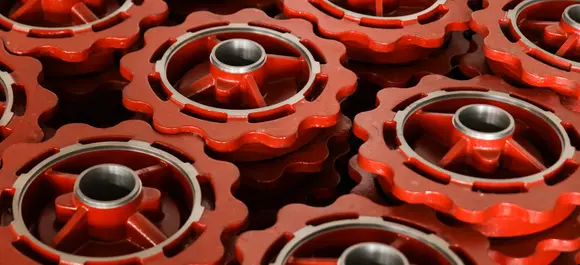Mobile:+86-311-808-126-83
Email:info@ydcastings.com
French
ss casting manufacturer
The Role of SS Casting Manufacturers in Modern Industries
In today's rapidly evolving industrial landscape, the demand for high-quality components and materials is more critical than ever. One of the most effective solutions for producing intricate and durable parts is through stainless steel (SS) casting. SS casting manufacturers play a crucial role in various sectors, including automotive, aerospace, construction, and consumer goods. This article delves into the significance of SS casting manufacturers and their contributions to modern industries.
Understanding Stainless Steel Casting
Stainless steel casting involves the process of pouring molten stainless steel into a mold to create parts that require complex geometries and superior strength. Due to its corrosion resistance, durability, and aesthetic appeal, stainless steel has become a preferred material for many applications. The versatility of stainless steel allows manufacturers to produce a wide range of products, from simple brackets to complex engine components.
The Advantages of Stainless Steel Casting
1. Durability and Strength One of the primary benefits of stainless steel is its exceptional mechanical properties. It can withstand high temperatures and heavy loads without compromising structural integrity. This makes it ideal for applications in harsh environments, such as marine, chemical processing, and oil and gas industries.
2. Corrosion Resistance Stainless steel is inherently resistant to rust and corrosion, making it suitable for applications where moisture and chemicals are prevalent. SS casting manufacturers can produce components that maintain their functionality and appearance over time, reducing the need for replacements and repairs.
3. Aesthetic Appeal With its shiny finish and sleek appearance, stainless steel is also aesthetically pleasing. It is often used in consumer products, architecture, and design, where visual appeal is as important as functionality.
4. Precision Engineering SS casting allows for intricate designs and fine details that would be challenging to achieve with other manufacturing processes. Advanced techniques such as investment casting and sand casting enable manufacturers to create highly precise components with intricate features.
ss casting manufacturer

Challenges Faced by SS Casting Manufacturers
Despite its advantages, the SS casting industry faces several challenges. One of the most significant issues is the rising cost of raw materials. Stainless steel prices fluctuate due to global demand and production levels, impacting the overall cost of the final product. Additionally, the process of stainless steel casting requires skilled labor and sophisticated equipment, which can be a barrier for smaller manufacturers.
Another challenge is the need for continual innovation. As industries evolve, the demand for specialized components increases. SS casting manufacturers must invest in research and development to create new alloys and improve manufacturing techniques to meet these demands. This commitment to innovation is essential for staying competitive in a global market.
The Future of SS Casting Manufacturing
The future of SS casting manufacturing looks promising, particularly as industries increasingly focus on sustainability. There is a growing trend towards using recycled stainless steel in the casting process, reducing waste and environmental impact. Moreover, advancements in technology, such as 3D printing and automation, are likely to revolutionize the casting process, making it more efficient and cost-effective.
Furthermore, as industries continue to shift towards lightweight materials, SS casting manufacturers will need to adapt by developing new lightweight alloys while maintaining the strength and durability associated with stainless steel. This adaptability will be crucial for manufacturers aiming to cater to sectors such as aerospace and automotive, where weight reduction can lead to significant fuel savings and improved performance.
Conclusion
SS casting manufacturers are vital players in the manufacturing sector, providing essential components that support various industries. Their ability to produce high-quality, durable, and aesthetically pleasing parts makes them indispensable in meeting modern engineering challenges. While they face significant hurdles, the commitment to innovation and sustainability will ensure that SS casting remains a key component of industrial production for years to come. As we move forward, the role of these manufacturers will only continue to grow, highlighting the importance of their contributions to the global economy.











